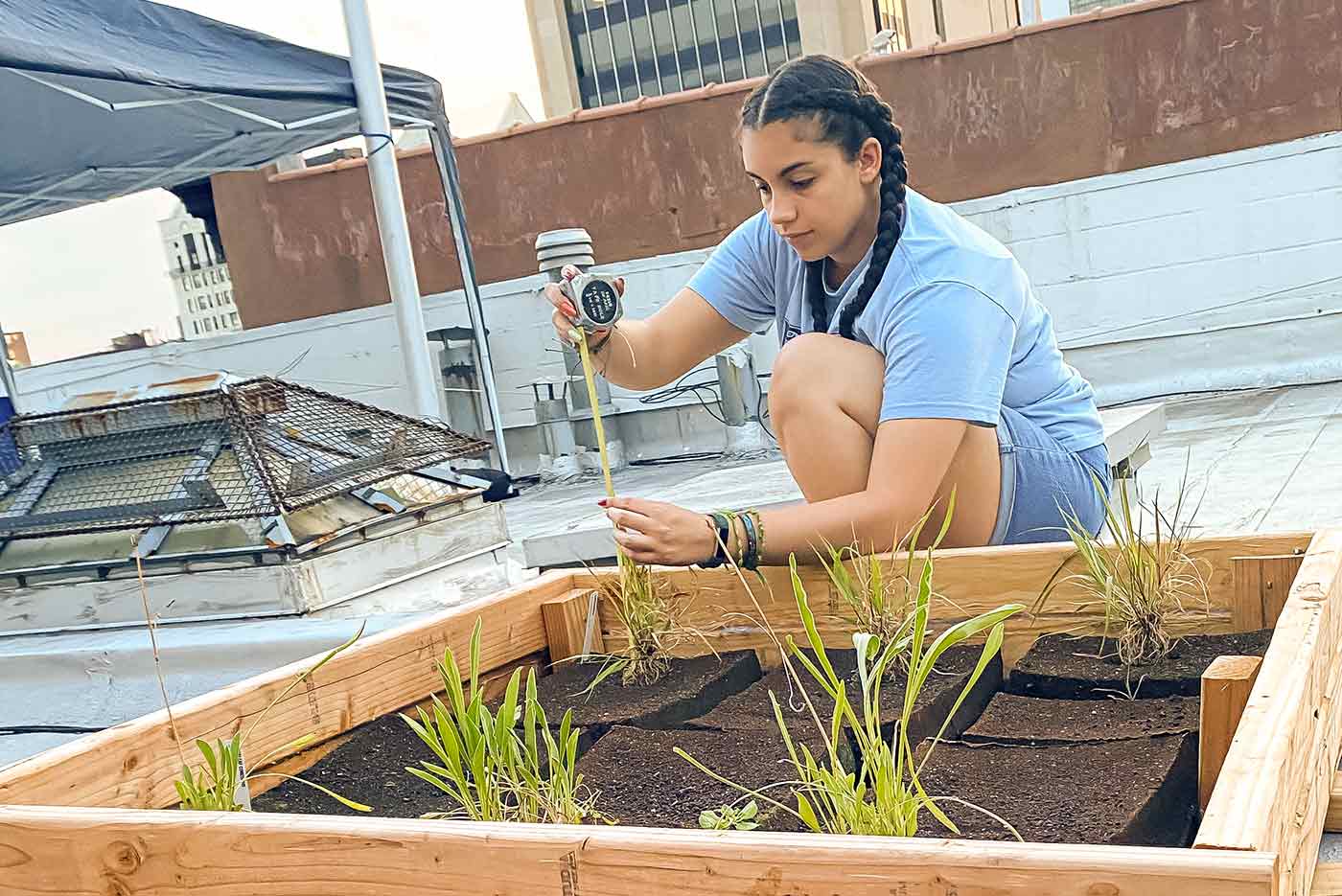As many New Yorkers sheltered in place this past summer, Hannah Darensbourg ’22 CLAS toiled away on the rooftop of her brownstone apartment building in New York City’s Harlem neighborhood. When she had received a Villanova Undergraduate Research Fellowship in February 2020, she had planned to use a plot in Villanova’s research garden to study growing conditions for plants native to the Northeast.
An Environmental Sciences and Geography double major, Hannah wanted to investigate if these plants could be used in green roofs—rooftop systems featuring vegetation, which can help with water management, enhance insulation and improve air quality. Then COVID-19 struck. Campus went virtual, and students were informed their summer research fellowships would have to be conducted at home.
“It was a blessing in disguise, actually,” Hannah says. “At Villanova’s garden, I wouldn’t have had the exact conditions I needed to test for green roof gardens. But I live in New York City on the fourth floor of a townhouse.” With her landlord’s blessing, she was able to construct her own research garden on the roof.
Hannah built four 3.5-square-foot beds, tilted slightly for drainage. She filled the beds with a lightweight foam substrate and planted native switchgrass and lanceleaf coreopsis. For 12 weeks, she watered each bed according to different criteria and recorded the outcomes.
Having reached some promising early conclusions, Hannah is eager to continue her research. She says, “I have such hope for the future. There’s still so little research in this area, but I hope it will become more interactive and more popular in our future, and I’m excited to be on the front line.”
Building a Garden from Scratch
Constructing anything atop a Harlem townhouse isn't easy. Hannah's roof access is up a narrow ladder, through a hatch. The plywood for the base of her beds had to be cut in strips and reassembled roof-side, and the two-by-fours for the sides were fed up the hatch one by one. "Hannah has the mind of an engineer," says Steven Goldsmith, PhD, associate professor of Geography and the Environment, who serves as Hannah's faculty mentor. "She truly thinks through issues with project design and monitoring."
